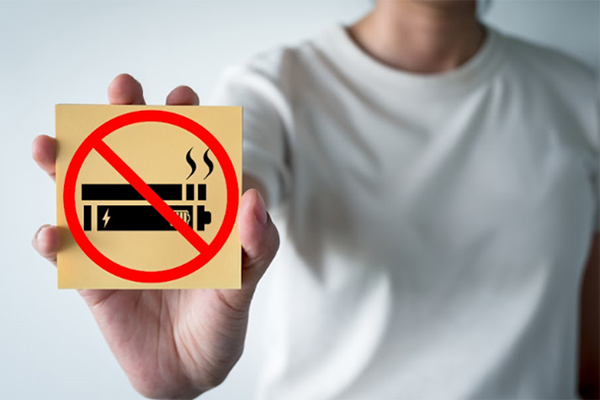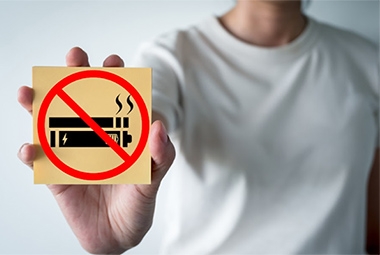
If you’re preparing for shoulder surgery, or already in recovery, there’s one crucial factor that can significantly affect your healing: nicotine. Whether it comes from cigarettes, vaping, pouches, or other non-tobacco nicotine products, research shows that nicotine use can impair tendon healing, increase postoperative pain, and raise the need for pain medication after surgery. Understanding how nicotine affects your recovery can help you make informed choices for a smoother, stronger comeback.
Why Tendon Healing Is So Delicate
Your shoulder is a complex joint where bones, muscles, and tendons work together for motion and stability. After an injury or surgery, the body must rebuild these delicate connections. That healing process relies on new tissue growth, collagen repair, and steady blood flow to deliver oxygen and nutrients.
Because tendons naturally have a limited blood supply, they already heal more slowly than other tissues. When nicotine is added to the mix, it further restricts blood flow, making recovery even more challenging.
How Nicotine Interferes with Healing
Nicotine causes blood vessels to constrict, limiting oxygen delivery and slowing the body’s natural repair processes. Reduced blood flow means tendons receive fewer of the building blocks needed for healing. This can lead to:
- Slower tendon reattachment and tissue regeneration
- Weaker, less flexible scar tissue
- Higher risk of infection or stiffness after surgery
- Increased rates of re-tear or delayed recovery
Recent research has also shown that even non-tobacco nicotine use, such as vaping or nicotine pouches, can negatively impact recovery. A recent research study found that patients who used non-tobacco nicotine products before arthroscopic rotator cuff repair experienced significantly higher levels of postoperative pain and required more opioids after surgery compared to non-users.1 These findings suggest that the harmful effects of nicotine on surgical outcomes extend beyond traditional tobacco products.
The Benefits of Quitting (Even Temporarily) before Shoulder Surgery
The good news: your body starts to recover quickly once you stop using nicotine. Surgeons typically recommend quitting at least 4 to 6 weeks before surgery and remaining nicotine-free during recovery. This allows circulation to improve, oxygen levels to normalize, and tissues to regain their natural healing potential.
Patients who quit before shoulder surgery often experience less pain, smoother recovery, and better progress in physical therapy. Avoiding nicotine also reduces anesthesia risks and supports overall wellness, benefiting not just your shoulder, but your entire body.
Supporting Stronger Healing After Shoulder Surgery
For optimal recovery, combine nicotine cessation with healthy lifestyle habits:
- Eat nutrient-rich foods with vitamin C, zinc, and protein to support collagen formation.
- Stay hydrated to keep tissues supple and promote cellular repair.
- Follow your physical therapy plan consistently to restore motion and strength safely.
If you’re preparing for shoulder surgery, schedule a consultation to discuss your surgical options and personalized recovery plan. From preoperative planning to postoperative recovery, we’re dedicated to helping you heal faster and regain shoulder function.
AUTHOR: Brian W. Hill, M.D., is a board-certified shoulder surgeon at Palm Beach Orthopedic Institute. He is an expert in advanced reconstructive and arthroscopic techniques and serves as an assistant team physician for the Washington Nationals and their affiliates. Dr. Hill treats shoulder injuries and arthritis with a focus on patient-centered care and clear communication.
Reference:
1. https://pubmed.ncbi.nlm.nih.gov/24859982/






